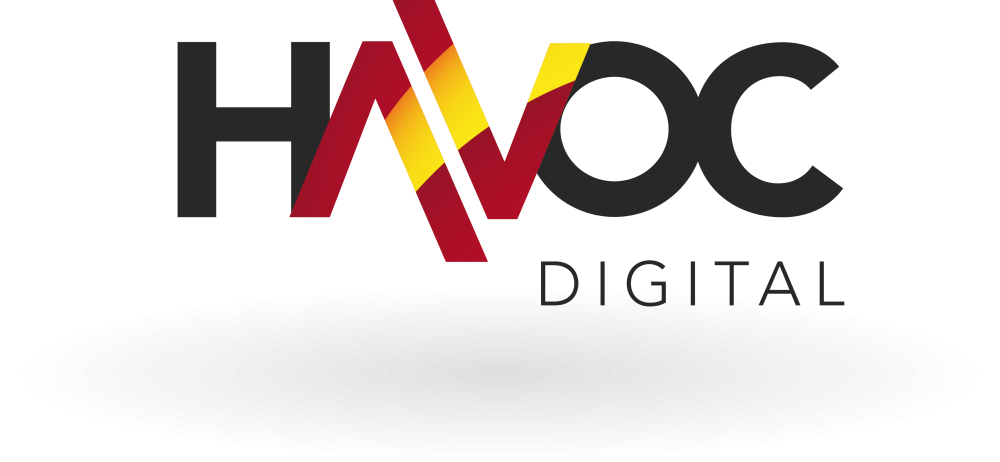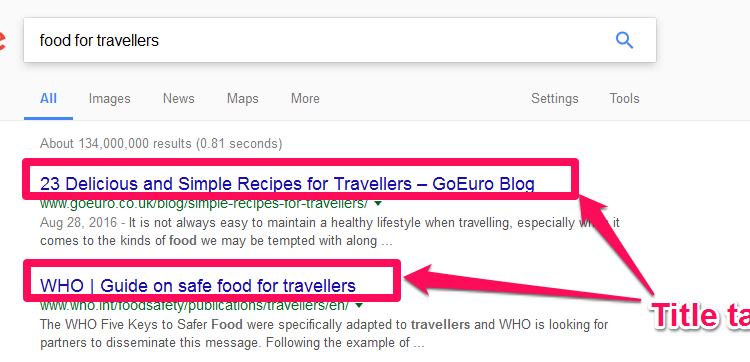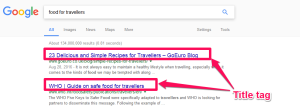The Importance of the Title Tag
The Title Tag is a Valuable Component of On-Page SEO
[Updated May 2023]
Since April 2018, there have been several developments and updates in the field of SEO, including changes to Google’s algorithm and recommendations regarding title tags.
Here are some key points to consider on ‘Title Tags’:
1. Length and truncation: In the past, Google displayed title tags up to a certain character limit (around 50-60 characters) in search results.
However, in recent years, Google has expanded the character limit and now displays title tags of varying lengths, typically up to around 55-70 characters.
It’s important to ensure that your title tags remain concise, compelling, and relevant within this character limit to avoid truncation.
2. Keywords and relevance: While keyword optimisation in title tags remains important, Google has increasingly shifted its focus to relevance and user intent.
It’s crucial to create title tags that accurately represent the content of the page and align with the search intent of users.
This helps Google understand the relevance of your page to specific queries and improves the chances of your page ranking higher in search results.
3. User engagement signals: As with meta descriptions, user engagement signals such as click-through rate (CTR) and bounce rate play a role in determining search rankings.
A well-crafted and compelling title tag can increase the likelihood of users clicking through to your website, thereby improving your CTR and potentially positively impacting your search rankings.
4. Mobile-first indexing: Google’s shift towards mobile-first indexing means that the mobile version of a website is given priority for indexing and ranking.
It’s crucial to optimise your title tags for mobile devices to ensure they are displayed properly and provide a good user experience in mobile search results.
5. Branding and consistency: Building a strong brand presence and maintaining consistency in your title tags across different pages of your website can positively impact your SEO efforts.
Branding in title tags can help improve click-through rates and increase brand recognition among users.
6. Structured data and rich snippets: Implementing structured data markup, such as schema.org, can enhance your search results with rich snippets.
Rich snippets provide additional information in search results, such as star ratings, product prices, event dates, and more.
While not directly related to title tags, rich snippets can significantly improve the visibility and click-through rates of your web pages.
It’s important to note that while title tags are an essential on-page SEO element, they are not the sole determinant of search rankings.
Google considers various other factors, including content quality, backlinks, user experience, and overall website relevance.
Therefore, it’s crucial to adopt a holistic SEO approach and focus on multiple aspects of optimisation.
Original Article Published: 27th April 2018
You are getting to grips with Search Engine Optimisation (SEO).
You no longer think SERPs is a type of drain cleaner, but …
Do you know the reasoning behind your SEO tasks?
For example, the Title Tags.
They are an important part of SEO for both you, the one waving your cyber wand, and the searching user, who wants an easy experience in finding your target webpage.
Understanding how to write the various HTML elements effectively can make a simple SEO task achieve your objectives and improve your user (website visitor) experience: something Google and the other Search Engines are keen for you to do.
The Title Tag of a web page must be accurate and succinct: it must describe in robot-recognisable language
(i.e. simple) what the page is about. If your primary keywords fit this bill, use them to provide an accurate description of the page’s content.
Besides SERPs, Title Tags are important when it comes to web browsers and social networks.
When your site visitor has many tabs opened on his web browser, you want the title to have recognisable (preferably key) words near the front to ensure the person does not lose track of your content.
Many social networks such as Facebook will use your Title Tag to shape what they actually display when you share that page, so bear that in mind too.
Important SEO keywords help but do not stuff your heading with variations of them as the search engines do not like that. Yes, you are pleasing the great robots but remember ultimately it is about your users and the first impression that your Title Tag gives. Put thought into it, think like a site visitor, and then consider the demands of the search engines.
When giving the search engines what they want, know that they like unique content so be sure to give a unique title for every page, and avoid default titles like “Home”. Not only might it make Google think you have duplicated content it will bore your users away from clicking.
For more information on Title Tags, Meta Descriptions, Headers, etc. refer to my earlier more comprehensive articles
“24 On-Page SEO Tips for Small Business”
“Basics of Onsite SEO” – Video
Ben Miranda






